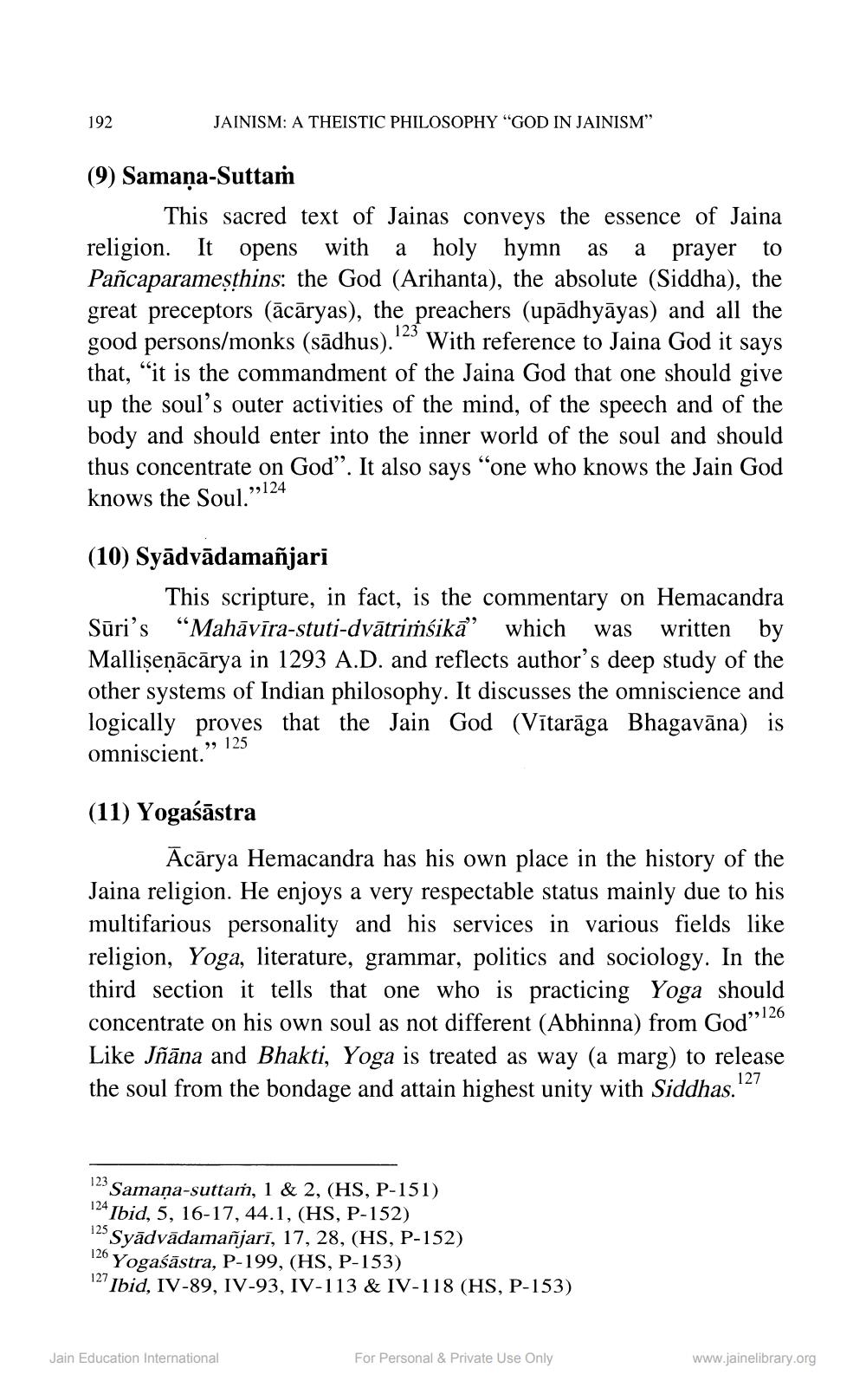________________
192
JAINISM: A THEISTIC PHILOSOPHY "GOD IN JAINISM"
(9) Samana-Suttam
This sacred text of Jainas conveys the essence of Jaina religion. It opens with a holy hymn as a prayer to Pañcaparameşthins: the God (Arihanta), the absolute (Siddha), the great preceptors (ācāryas), the preachers (upādhyāyas) and all the good persons/monks (sādhus)."- With reference to Jaina God it says that, “it is the commandment of the Jaina God that one should give up the soul's outer activities of the mind, of the speech and of the body and should enter into the inner world of the soul and should thus concentrate on God”. It also says "one who knows the Jain God knows the Soul.”124
(10) Syādvādamañjari
This scripture, in fact, is the commentary on Hemacandra Sūri's “Mahāvīra-stuti-dvātrimśikā" which was written by Mallişeņācārya in 1293 A.D. and reflects author's deep study of the other systems of Indian philosophy. It discusses the omniscience and logically proves that the Jain God (Vītarāga Bhagavāna) is
omniscient.” 125
(11) Yogaśāstra
Ācārya Hemacandra has his own place in the history of the Jaina religion. He enjoys a very respectable status mainly due to his multifarious personality and his services in various fields like religion, Yoga, literature, grammar, politics and sociology. In the third section it tells that one who is practicing Yoga should concentrate on his own soul as not different (Abhinna) from God”l20 Like Jñāna and Bhakti, Yoga is treated as way (a marg) to release the soul from the bondage and attain highest unity with Siddhas."
12 Samana-suttaṁ, 1 & 2, (HS, P-151) 124 Ibid, 5, 16-17, 44.1, (HS, P-152) 12 Syādvādamañjarī, 17, 28, (HS, P-152) 120 Yogaśāstra, P-199, (HS, P-153) 127 Ibid, IV-89, IV-93, IV-113 & IV-118 (HS, P-153)
Jain Education International
For Personal & Private Use Only
www.jainelibrary.org




